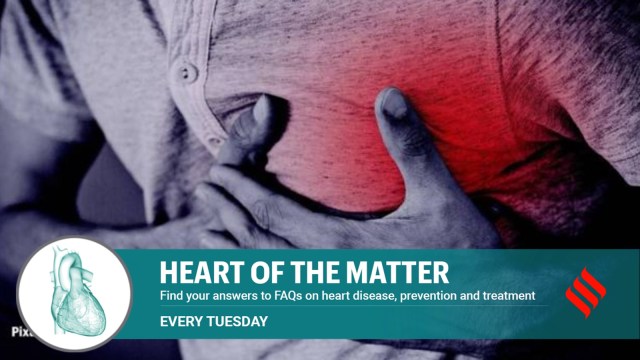How to prevent heart attacks? Begin in your 20s with this seven-point checklist
Dr Hisham Ahamed, Associate Professor (Cardiology), Amrita Hospital, Kochi, explains easy ways to get your heart routine right early on
 Incorporating more plant-based foods into your diet, such as legumes, nuts, seeds, and tofu, can help lower cholesterol levels and reduce the risk of heart disease. (Photo: Pixabay)
Incorporating more plant-based foods into your diet, such as legumes, nuts, seeds, and tofu, can help lower cholesterol levels and reduce the risk of heart disease. (Photo: Pixabay)Written by Dr Hisham Ahamed
Maintaining heart health is crucial at any age but it’s particularly important to establish healthy habits in your 20s to lay a strong foundation for the future and control risk factors. And it’s not that complicated as we look at the following strategies to protect yourself during this pivotal decade.
1) Nutritious Diet: Your 20s are the right decade to establish eating habits that can benefit you for a lifetime and be disciplined about it as well. So centre your dietary habits around a mix of fruits, vegetables, whole grains, lean proteins and healthy fats. These foods provide essential vitamins, minerals, antioxidants and fibres that support heart health. Incorporating more plant-based foods into your diet, such as legumes, nuts, seeds, and tofu, can help lower cholesterol levels and reduce the risk of heart disease. Additionally, aim to limit your intake of saturated fats, trans fats, cholesterol, sodium and added sugars, as these trigger high blood pressure and cholesterol levels.
Opt for cooking methods like grilling, baking, steaming, or sautéing instead of frying, and choose healthier alternatives for snacks, such as fresh fruit, yogurt, nuts or whole-grain crackers.
2) Regular Exercise: Go for 150 minutes of moderate-intensity aerobic exercise or 75 minutes of vigorous-intensity aerobic exercise weekly, coupled with muscle-strengthening routines on two or more days per week. Cardiovascular exercises like brisk walking, jogging, cycling, swimming and dancing help strengthen the heart muscle, improve circulation and lower blood pressure and cholesterol levels.
Include strength training exercises at least two days per week, targetting all major muscle groups. This could involve using free weights, resistance bands, weight machines or bodyweight exercises like push-ups, squats, and lunges. Gradually increase the resistance or intensity to continue challenging your muscles and promote strength gains. Focus on stretching major muscle groups and include techniques like static stretching, dynamic stretching, yoga or Pilates. Aim for at least one or two rest days per week, and listen to your body’s signals to adjust your routine as needed.
Whether it’s joining a sports team, attending group fitness classes, or simply going for a walk with friends, staying active in your 20s with peers is the easiest way to build discipline.
3) Avoid Smoking and Limit Alcohol: If you have begun smoking, it may be easier to quit in your 20s when addictive behaviour has not quite kicked in. Smoking damages the blood vessels, increases blood pressure and heart rate, reduces oxygen levels in the blood and raises the risk of heart attacks, stroke, and other cardiovascular problems.
Alcohol is another such trigger. It doesn’t matter how much you drink – the risk to the drinker’s health starts from the first drop of any alcoholic beverage. The only thing that we can say for sure is that the more you drink, the more harmful it is.
4) Maintain a Healthy Weight: Excess weight, especially around the midsection, is a significant risk factor for heart disease. Your ideal weight depends upon your height, body composition, muscle mass and overall health. Instead of focussing solely on weight, aim for a healthy body composition and lifestyle.
5) Regular Health Check-ups: Schedule routine visits with your healthcare provider to discuss your overall health, review your medical and family history to assess your heart disease risk. Musts are blood pressure measurements, cholesterol level assessments, blood glucose tests and body weight evaluations.
6) Sleep: Aim for seven to nine hours of quality sleep per night to make sleep a priority by establishing a regular bedtime schedule. This is the best way for stress management.
7) Unplug regularly: Take breaks from technology and screen time to reduce mental clutter and recharge. Set aside dedicated time to disconnect from devices and engage in offline activities. Don’t hesitate to reach out for professional help if stress becomes overwhelming or begins to interfere with your daily life. A therapist or counsellor can provide coping strategies and support tailored to your individual needs.
- 01
- 02
- 03
- 04
- 05































